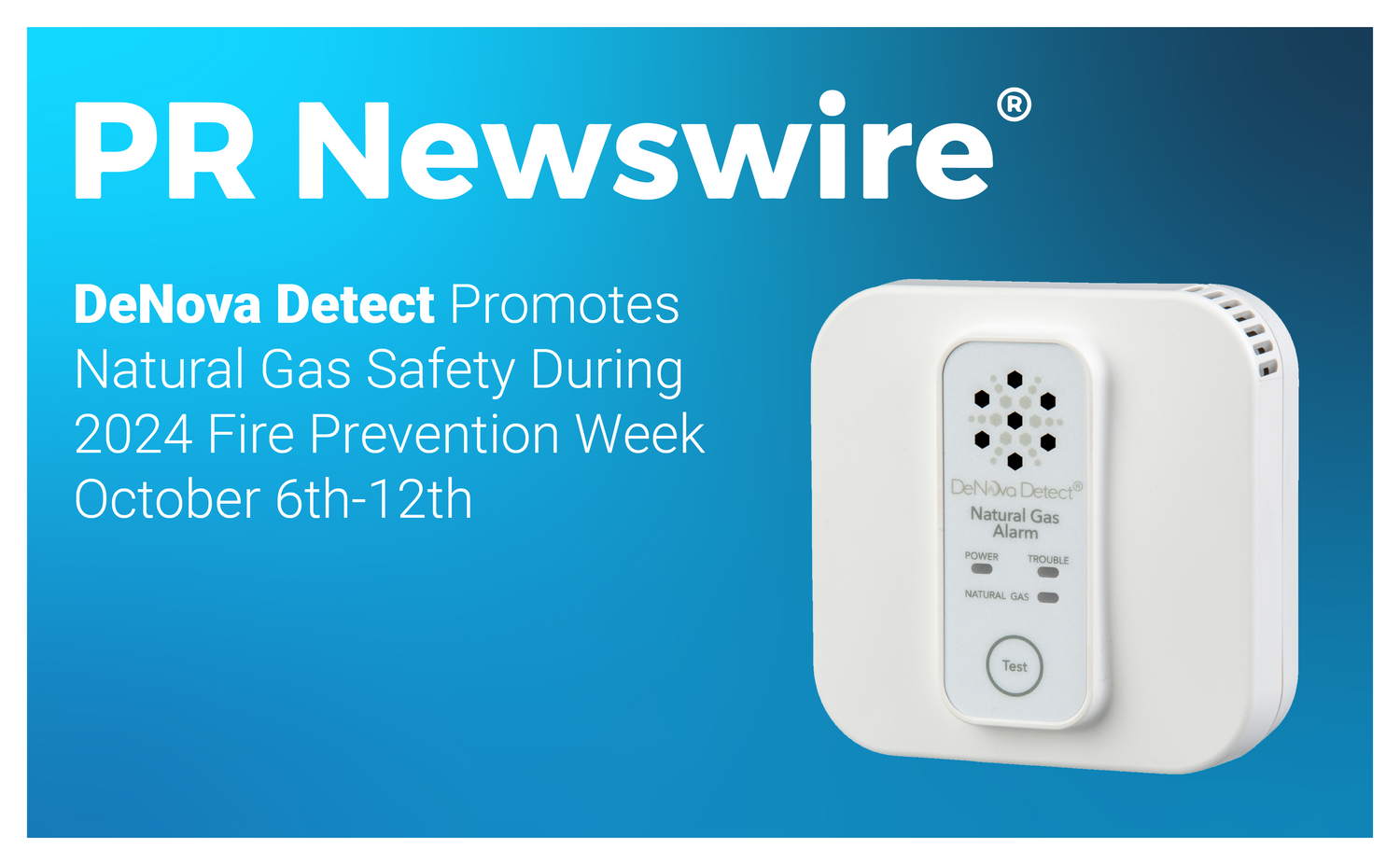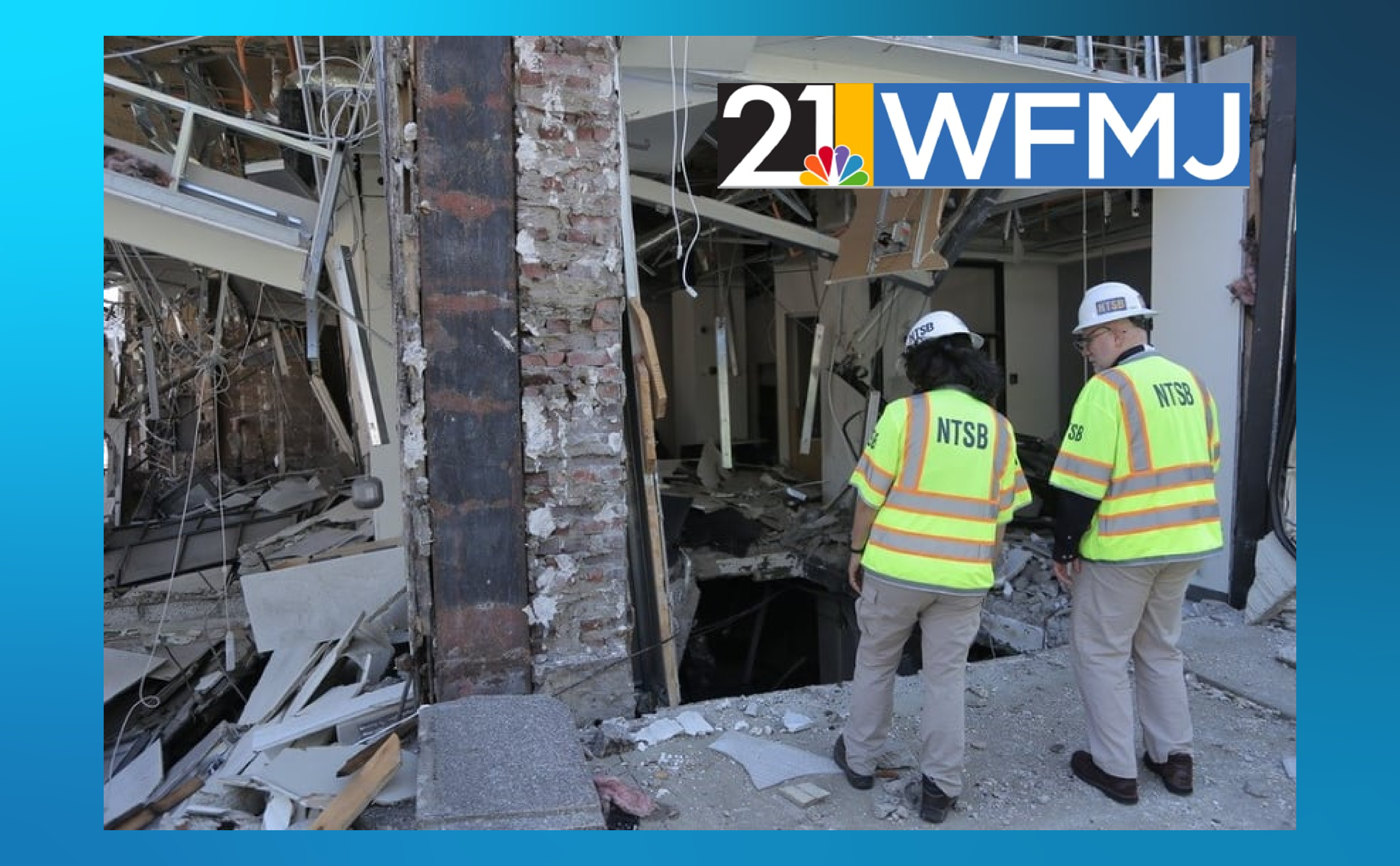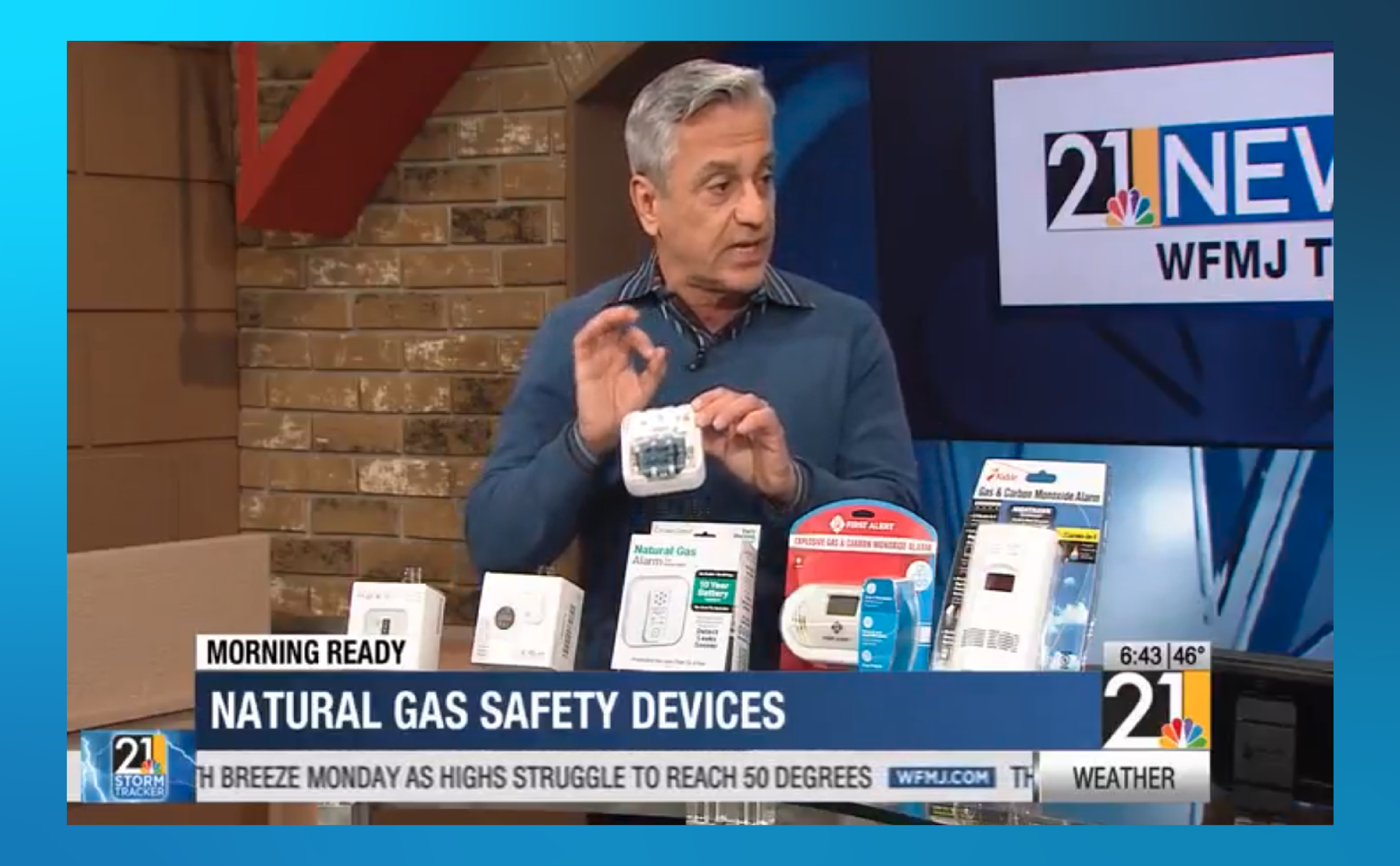La Junta Nacional de Seguridad del Transporte recomienda a los propietarios de viviendas que instalen alarmas de gas natural mientras Estados Unidos continúa perdiendo demasiadas vidas y hogares por explosiones catastróficas que son tragedias evitables.
LISLE, Illinois , 26 de septiembre de 2024 /PRNewswire/ -- DeNova Detect , creado por New Cosmos USA Inc., uno de los principales fabricantes de alarmas de gas natural del mundo, está utilizando Semana de Prevención de Incendios™ del 6 al 12 de octubre como una oportunidad para educar a los estadounidenses sobre la seguridad del gas natural. Con el aumento de las explosiones de gas natural debido al envejecimiento de la infraestructura, los electrodomésticos viejos y las conexiones de gas sueltas, existe una creciente conciencia de que se necesita una triple combinación de alarmas de seguridad, de humo, de monóxido de carbono y de gas natural para mantener seguros los hogares, las familias y los negocios. La Junta Nacional de Seguridad del Transporte (NTSB) ahora recomienda a los estadounidenses con electrodomésticos a gas natural que instalen alarmas de gas natural que detecten las fugas de gas antes de que se enciendan y provoquen explosiones. Ciudad de Nueva York comenzó a exigir alarmas de gas natural este año, al igual que el estado de Maine . Otros siete estados, incluidos Connecticut , Illinois , Massachusetts , Nueva Jersey , Nueva York , Carolina del Norte , y Tennesse tienen legislación pendiente para exigir estas importantes alarmas de seguridad para la vida.
DeNova Detect produce la única alarma de gas natural residencial que funciona con batería durante 10 años en el mundo, probada según la norma UL1484 por ETL. Además de detectar gas natural en promedio 11 minutos antes que los sensores de gas tradicionales, también funciona durante diez años sin necesidad de cambiar la batería y todas las alarmas DeNova Detect tienen una tasa de falsas alarmas prácticamente nula. Las alertas de voz en inglés y español anuncian el tipo de peligro e instrucciones para evacuar y luego llamar al 911.
"Estamos muy contentos de que la NTSB, la principal agencia de seguridad pública del país, esté aconsejando a la gente que instale alarmas de gas natural y de que muchos legisladores y profesionales de la seguridad contra incendios estén tomando este tema en serio. Aunque se ha demostrado que las alarmas de gas natural previenen las explosiones de gas con una detección temprana, muchos consumidores aún no saben que existe esta tecnología que salva vidas, a pesar de que el 60 por ciento de los hogares en los EE. UU. utilizan gas natural", dijo Ron Lazarus, director de operaciones de DeNova Detect/New Cosmos USA. "Durante el mes de octubre, DeNova Detect participará en eventos de educación comunitaria y medios de comunicación en todo el país. Estados Unidos . Es el momento perfecto para generar conciencia sobre la seguridad del gas natural, ya que hay un mayor enfoque en la prevención de incendios".
Un incidente o explosión de gas natural ocurre aproximadamente cada 40 horas en Estados Unidos . Los departamentos de bomberos locales responden a miles de incendios domésticos cada año que comienzan con la ignición de gas natural. Durante las últimas décadas, las fugas de gas natural han provocado explosiones que se cobraron muchas vidas estadounidenses, lesionaron a muchos más y destruyeron edificios de apartamentos y viviendas unifamiliares y multifamiliares con millones de dólares en daños a la propiedad. A menudo, es difícil reconocer la presencia de una fuga de gas o hay poca advertencia antes de que ocurra una explosión.
Ciudad de Kansas, Kansas Jefe de bomberos Dennis Rubin Recuerda la primera víctima mortal a la que respondió: una explosión de gas natural. "Está grabado en mi mente y siempre lo estará. Ocurrió en 1972, arrasó dos casas, dañó gravemente una tercera y mató a dos niños pequeños y a su madre. Si hubiera habido una alarma de gas natural en la casa para alertarlos, podrían haber salido y haber sobrevivido", dijo. Ciudad de Kansas Jefe de bomberos Dennis Rubin . "Hoy, más de medio siglo después, seguimos perdiendo demasiadas vidas y hogares y estamos poniendo a los bomberos en riesgo por explosiones catastróficas de gas natural. Las alarmas de gas natural son una medida simple y muy eficaz que los consumidores pueden tomar ahora para proteger a sus familias y hogares".
Ciudad de Nueva York A principios de este año, Nueva York se convirtió en la primera ciudad importante de Estados Unidos en exigir alarmas de gas natural. En la última década, la ciudad de Nueva York ha sufrido varias explosiones de gas natural devastadoras en las que los residentes murieron y resultaron heridos, se destruyeron edificios y las familias perdieron sus hogares. Consolidated Edison lanzó un programa piloto en Nueva York en 2018 con alarmas de gas natural destinadas a prevenir futuras explosiones de gas. Con Ed eligió utilizar alarmas de gas natural DeNova Detect y ha instalado más de 250.000 de ellas en edificios y viviendas de Manhattan y el condado de Westchester.
"Estamos orgullosos de que Ciudad de Nueva York "Estamos liderando la nación en este importante tema de seguridad pública y esperamos que otros sigan nuestro ejemplo pronto. Las alarmas de gas natural y la detección temprana y las advertencias que brindan son esenciales para la seguridad pública", dijo la asambleísta Alicia L. Hyndman de Queens, Nueva York . "Como es la ciudad más poblada de Estados Unidos, los incidentes relacionados con el gas que ocurren aquí suelen afectar a barrios enteros. Por eso es crucial detectar las fugas de gas antes de que se produzcan explosiones y se arruinen vidas de forma irreparable".
DeNova Detect fabrica la única alarma de gas natural residencial que funciona completamente con batería durante 10 años en el mundo, probada según la norma UL1484 por ETL. Además de detectar gas natural en promedio 11 minutos antes que los sensores de gas tradicionales, también funciona durante diez años sin necesidad de cambiar la batería y tiene una tasa de falsas alarmas prácticamente nula. DeNova Detect también ofrece una alarma combinada 2 en 1 de gas natural y monóxido de carbono.
El diseño inalámbrico de DeNova Detect significa que se puede colocar más cerca del techo, donde el gas natural sube y se acumula primero. Esta es una de las varias razones por las que proporciona una detección más temprana que las alarmas enchufables tradicionales. Las alertas de voz en inglés y español anuncian el tipo de peligro e instrucciones para evacuar y luego llamar al 911. Las alarmas de gas natural deben instalarse cerca de todos los aparatos de gas, incluidos los aparatos de cocina, las secadoras de ropa, los calentadores de agua, los hornos y las chimeneas de gas.
Busque alarmas en las tiendas Lowe's, en lowes.com y DeNovaDetect.com.
Fuente: PR Newswire






Dejar un comentario
Este sitio está protegido por hCaptcha y se aplican la Política de privacidad de hCaptcha y los Términos del servicio.